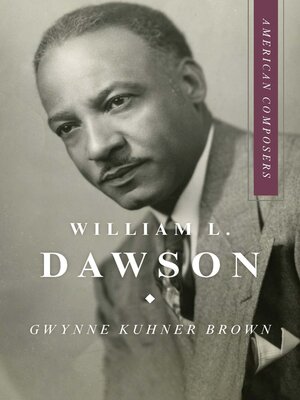
Sign up to save your library
With an OverDrive account, you can save your favorite libraries for at-a-glance information about availability. Find out more about OverDrive accounts.
Find this title in Libby, the library reading app by OverDrive.



Search for a digital library with this title
Title found at these libraries:
| Library Name | Distance |
|---|---|
| Loading... |
Born in 1899, Dawson studied at the Tuskegee Institute in Alabama. He worked as a church, jazz, and orchestral musician in Kansas City and Chicago in the 1920s while continuing his education as a composer. He then joined the Tuskegee faculty, where for 25 years he led the Tuskegee Institute Choir to national prominence through performances of spirituals at the opening of Radio City Music Hall, on radio and television, and at the White House. The Philadelphia Orchestra conducted by Leopold Stokowski premiered Dawson's Negro Folk Symphony in 1934.
Engaging and long overdue, William L. Dawson celebrates a pioneering Black composer whose contributions to African American music, history, and education inspire performers and audiences to this day.
|Preface
Acknowledgments
Introduction
Chapter 1. Early Life
Chapter 2. Tuskegee
Chapter 3. Vocal Music
Chapter 4. Instrumental Music
Chapter 5. After Tuskegee
Notes
Select Discography
Works
Sources and Bibliography
Index
|"Gwynne Kuhner Brown has given us an excellent book chronicling the life of one of America's greatest composers. The thoughtful research into his education and career provides a stunning account that is easy to understand."—Marques L. A. Garrett, editor of The Oxford Book of Choral Music by Black Composers|Gwynne Kuhner Brown is a professor of music at the University of Puget Sound.







